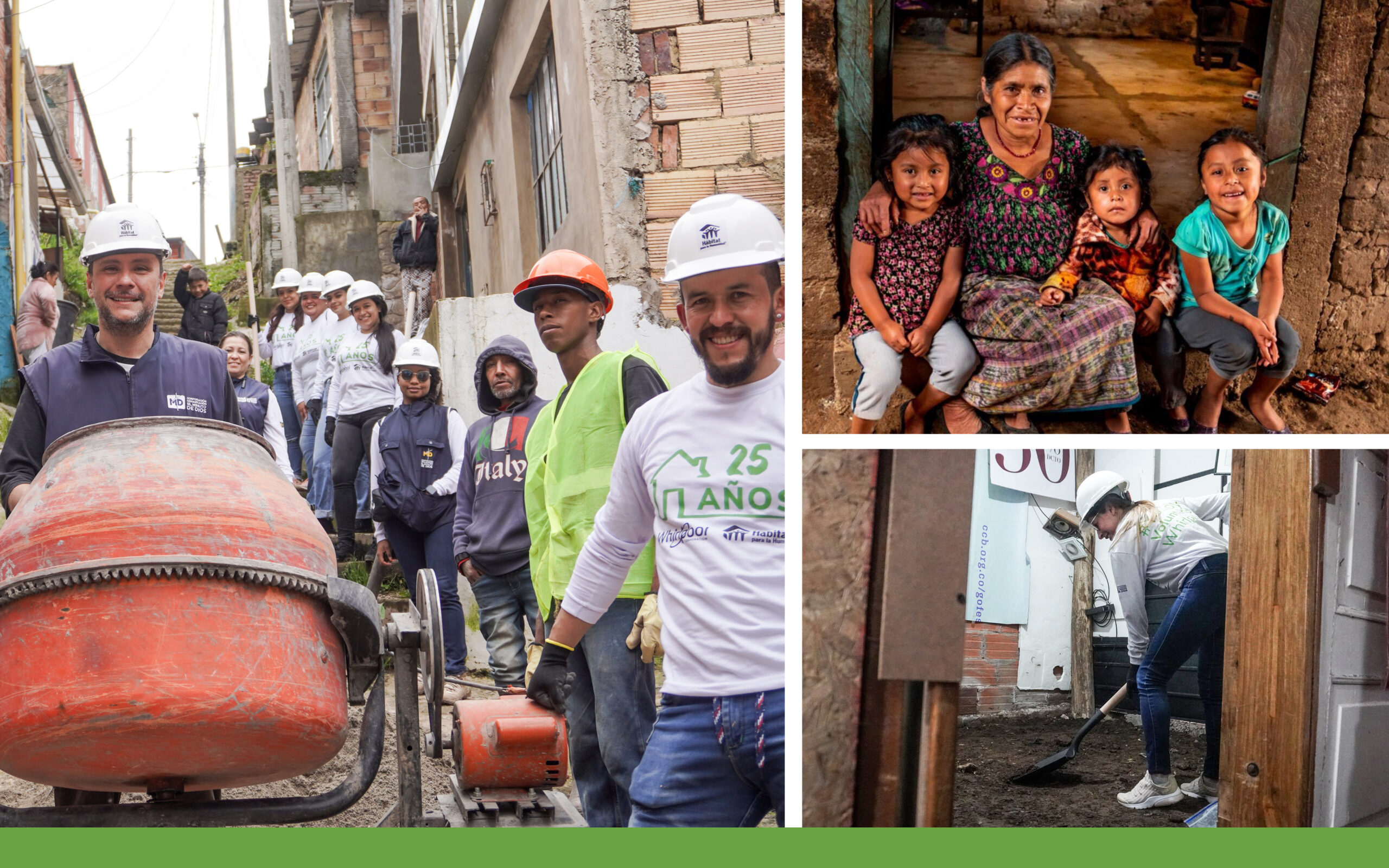
In celebration of the 25th anniversary of Whirlpool Corporation’s support of Habitat for Humanity, a team of 25 employees supported a life-changing project to impact 25 families in a new Latin American market for Habitat for Humanity International. The Whirlpool employees in Colombia worked to help update dirt floors to concrete floors in the family’s homes. The work is part of a Habitat initiative, called “100,000 Floors to Play On”, which is helping to replace 100,000 dirt floors with concrete floors by 2028. Concrete floors support hygienic housing that contributes to cognitive development, helping children to play, study, and grow up healthy.
In Latin America and the Caribbean, nearly 40% of the population does not have access to decent housing which means they reside in housing built with precarious materials or without basic amenities such as toilets, water, and electricity. Inadequate housing leads to more vulnerability to illness, poverty, eviction, and disasters. And approximately 6% of households have dirt floors, which increases the risk for parasites, bacteria, and insects that cause illnesses such as diarrhea, respiratory diseases, anemia, immunodeficiencies, malnutrition and Chagas disease. Replacing dirt floors with concrete floors generates direct health benefits as confirmed by a World Band study.1 The research revealed at least a 36% improvement in cognitive development among children whose dirt floors were transformed into concrete. In addition, children in these households showed reductions in parasitic infections, diarrhea and anemia, while parents showed an improvement in housing satisfaction and decreases in depression and stress levels.
The work supported by Whirlpool Corporation employees in Colombia directly benefited 125 people with healthier and safer homes providing better living conditions and giving children an adequate floor to play on. The program also supports the local economy by hiring labor and purchasing construction materials at local establishments.
1 Housing, Health and Happiness by the World Bank and the University of California